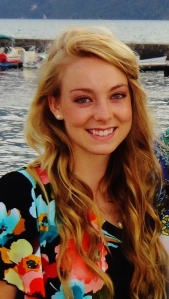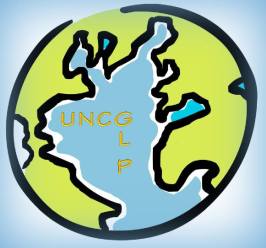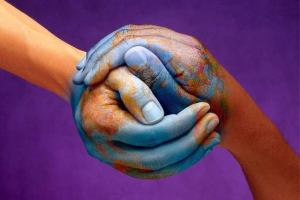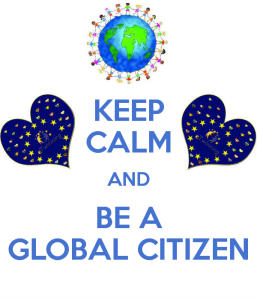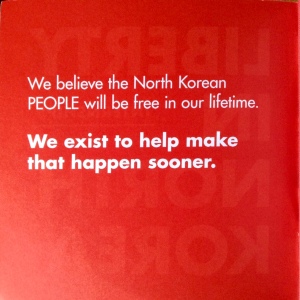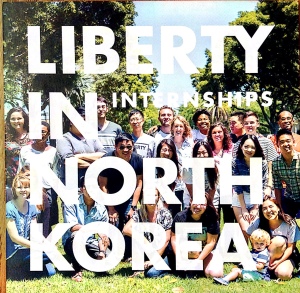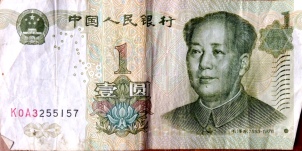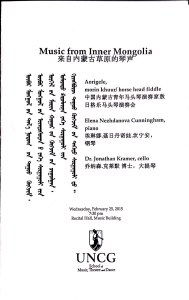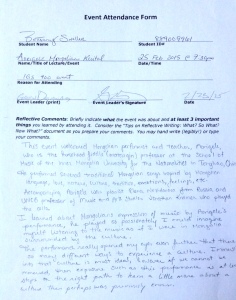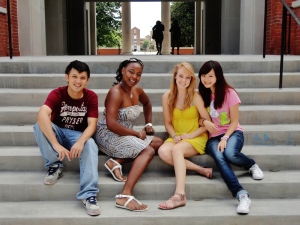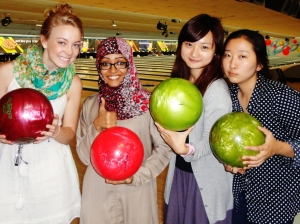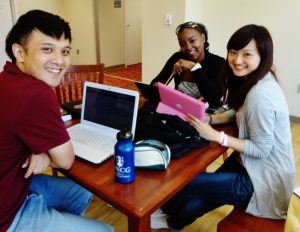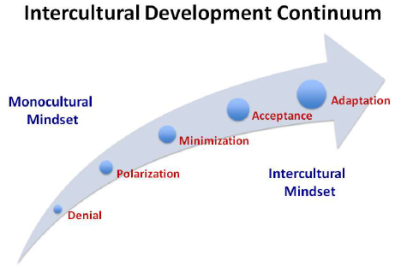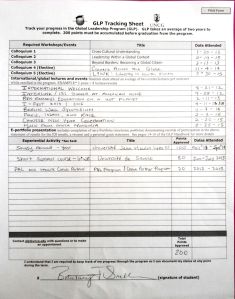Personal Statement
I first heard about the Global Leadership Program in my International Global Studies 200 course. The International Programs Center came to do a presentation about joining the GLP. At that time, I was also living in the International Residence Hall on campus, and was an active member as an International Peer Advisor and Liaison (PAL) and an Interlink Conversation Partner, so essentially I was already completing several GLP requirements without even knowing it. I decided to join and have since grown into a more developed leader with a passion for global awareness of the many diverse cultures and international situations in the world. This passion grew over the course of my undergraduate years and I am confident it will only continue to intensify as I further experience new cultures. My ability to communicate cross-culturally in a multiethnic, multidiscipline environment was strengthened substantially during my study abroad exchange in France. In addition to studying in France, I worked and lived as a European resident, and I traveled to numerous European cities and countries. These experiences accumulated into fourteen months of my life that became crucial to the advancement and betterment of my academic, professional, and personal goals. Upon returning from abroad, the Global Leadership Program, with its specialized colloquiums and events helped me channel my abilities to further solidify my new, globalized vision of the world. GLP gave me opportunities to develop my skills and has substantially contributed to my journey towards becoming a global citizen.
Colloquia
Cross Cultural Understanding
One of the requirements for GLP is attending three core colloquiums and two electives ones. My first core colloquium dates all the way back to January 30th, 2013 and was titled “Cross Cultural Understanding”. At the time, I didn’t realize the importance of this lecture that would become the fundamental foundation of my cross-cultural understanding that I would later build upon. During this lecture with Dr. Patrick Madsen, whose goal was to provoke thought and expand our cross-cultural and inter-cultural knowledge, I vividly remember thinking how I already understood everything he was saying; visualizing myself as sufficiently sensitive and knowledgeable to other cultures. However, now I realize that the ‘me-back-then’ was simply overconfident and unknowingly naïve. Hearing a lecture and nodding my head every so often gave me the false impression that I truly understood awareness and sensitivity of other cultures. But how could I really understand cross-cultural competency and sensitivity when I never knew what it was like to experience a culture and actually not understand it? The same false understanding happened when I first took the Intercultural Development Inventory in my IGS 200 course, in which I believed that ‘common sense’ would earn me the highest ranking. It would not be until two years later that I would finally hear of my results in comparison to my post-study abroad perspective and new IDI results, which I will discuss in more detail later on.
Leadership within a Global Context
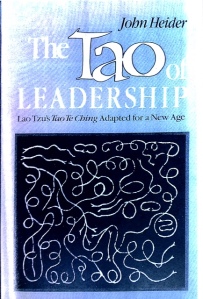
The second core colloquium, “Leadership within a Global Context”, was actually the last of the three that I attended. Having missed previous opportunities during my study abroad year, I was only able to attend this colloquium February of this year. This time, in opposition to my first core colloquium, I truly understood what the lecture meant. I was hearing what was being said, and could apply it directly to my previous experiences. It dawned on me, “Yes, I know what it means to be a leader within a global context, because I’ve already been there, done that.” This was a silent reflection I wouldn’t have been able to conjure up back in 2013. Moreover, it was a simple reflection of my journey towards becoming a global citizen. During the lecture, Dr. Hamilton and Ms. Gonzalez emphasized how leadership is a result of a healthy network of relationships that we have with other people. Ever since that day, I’ve made a conscious effort to be more aware of my relationships in both professional and academic settings because these, on often times, create 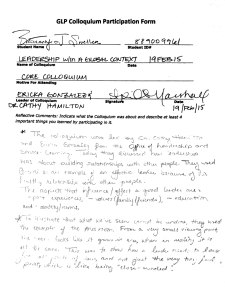 opportunities that would not have otherwise been apparent. One lesson that I considered very important from this lecture was the relationship of leadership and the Ames room illustration. The Ames room pushes the boundaries of human perception because it is a distorted room due to an optical illusion. This illusion, however, only exists from a small focal area in the room. This illustration was very eye-opening in relation to leadership because it helps illustrate how one must be open-minded and must consider other perspectives (and not just one’s own) in order to have the assets of an effective leader.
opportunities that would not have otherwise been apparent. One lesson that I considered very important from this lecture was the relationship of leadership and the Ames room illustration. The Ames room pushes the boundaries of human perception because it is a distorted room due to an optical illusion. This illusion, however, only exists from a small focal area in the room. This illustration was very eye-opening in relation to leadership because it helps illustrate how one must be open-minded and must consider other perspectives (and not just one’s own) in order to have the assets of an effective leader.
Beyond Borders: Becoming a Global Citizen
“What is a citizen?” was the first question Dr. Stephen Sills evoked in the third core colloquium of global citizenship. Though defined by several factors, citizenship is the right to the life and security of a person. Citizenship entails freedom from slavery and freedom of: speech, information, education, religion, association, and assembly. The meaning of what it would be like to lack citizenship is exemplified by immigrants and refugees who flee their countries in fear of persecution, among economical, political, and social turmoil. This question of citizenship has become increasingly aware to me as I have, during my 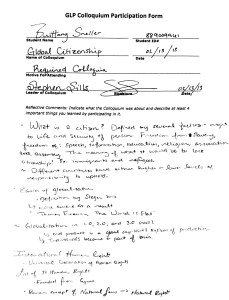 undergraduate years, volunteered with various immigrant and refugee resettlement organizations that assist immigrant and refugees in gaining self-sufficiency through education. Their situations are becoming more transparent to the rest of the world as a result of globalization. Dr. Sills evoked the basics of globalization by Steger’s (2003) definition and by Thomas Freeman’s “The World is Flat” and described how different countries have either higher or lower levels of responsibility to uphold. The end product of globalization is a global capitalist system of production in which individuals become an essential component. Meaning me, a student at UNCG is just as essential to the system as a graduate from Harvard. For me, becoming a global citizen means identifying that we as individuals are an integral process, a part of a larger, emerging world community that can only be built upon by our awareness and actions toward further global engagement.
undergraduate years, volunteered with various immigrant and refugee resettlement organizations that assist immigrant and refugees in gaining self-sufficiency through education. Their situations are becoming more transparent to the rest of the world as a result of globalization. Dr. Sills evoked the basics of globalization by Steger’s (2003) definition and by Thomas Freeman’s “The World is Flat” and described how different countries have either higher or lower levels of responsibility to uphold. The end product of globalization is a global capitalist system of production in which individuals become an essential component. Meaning me, a student at UNCG is just as essential to the system as a graduate from Harvard. For me, becoming a global citizen means identifying that we as individuals are an integral process, a part of a larger, emerging world community that can only be built upon by our awareness and actions toward further global engagement.
Careers Across the Globe
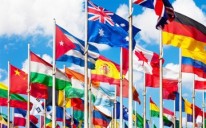 Dr. Madsen lectured on finding careers across the globe which greatly aided in my research of finding an internship or job opportunity abroad once I graduate. Something that I really took from this colloquium was realizing the importance of networking, exemplified by the relatively new social media platform, LinkedIn. Studies show that approximately 94% of professionals use this as a recruiting form. One thing I never really considered about job searching was the importance of “knowing who I am” and being able to advertise, so to speak, “What I’m all about.” Dr. Madsen’s lecture gave me a new way to think about myself. How to translate my real-life experiences to make me look desirable as a candidate on paper? Knowing my “brand” was something I never really considered, but which made a tremendous amount of sense after my experiences abroad. Those experiences, I thought, would become one of my major “selling points”, among others: multilingual skills, geographic flexibility, motivation, etc. Not only is it important to have these skills and experiences, but now it’s important to also have the creative ability to “market” them on paper, online, and in person. Dr. Madsen gave us several platforms and websites to search for international opportunities; whether that may be in the form of jobs, internships, or volunteer programs.
Dr. Madsen lectured on finding careers across the globe which greatly aided in my research of finding an internship or job opportunity abroad once I graduate. Something that I really took from this colloquium was realizing the importance of networking, exemplified by the relatively new social media platform, LinkedIn. Studies show that approximately 94% of professionals use this as a recruiting form. One thing I never really considered about job searching was the importance of “knowing who I am” and being able to advertise, so to speak, “What I’m all about.” Dr. Madsen’s lecture gave me a new way to think about myself. How to translate my real-life experiences to make me look desirable as a candidate on paper? Knowing my “brand” was something I never really considered, but which made a tremendous amount of sense after my experiences abroad. Those experiences, I thought, would become one of my major “selling points”, among others: multilingual skills, geographic flexibility, motivation, etc. Not only is it important to have these skills and experiences, but now it’s important to also have the creative ability to “market” them on paper, online, and in person. Dr. Madsen gave us several platforms and websites to search for international opportunities; whether that may be in the form of jobs, internships, or volunteer programs. 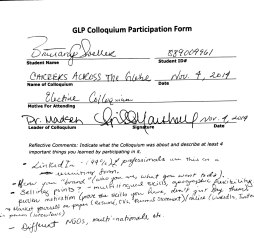 This colloquium was a great way for me to reflect on knowing “my brand”, especially since at this time, I had only returned from abroad for a couple months and was still processing what my time abroad meant for me upon returning to the US. Careers across the Globe helped me see that my further goals were definitely going to have an international and global focus; however, I would need much more experience than study abroad in order to reach those goals.
This colloquium was a great way for me to reflect on knowing “my brand”, especially since at this time, I had only returned from abroad for a couple months and was still processing what my time abroad meant for me upon returning to the US. Careers across the Globe helped me see that my further goals were definitely going to have an international and global focus; however, I would need much more experience than study abroad in order to reach those goals.
LiNK: Liberty in North Korea
After two years membership in GLP, my final elective colloquium was hosted by Liberty in North Korea (LiNK), a non-profit assisting in rescuing and resettling North Korean Refugees. I first became aware of the situation in North Korea during my year abroad in France, and it was a story shared by LiNK that made me want to change my concentration to Human Rights. Though I could not change my concentration, due to insufficient credit transferability, my passion for international action in humanitarian aid began to quickly develop. I have known for a short while that my academic, professional, and personal endeavors are going to focus generally on international and global situations or crises. I would like for my participation in the global community to mean making a meaningful impact; I essentially want to do something that means improving, changing, or making a difference for other cultures and peoples of the world. LiNK’s presentation offered me insight on how I could become a part of this process in aiding North Korean immigrants and refugees indirectly, by raising awareness. 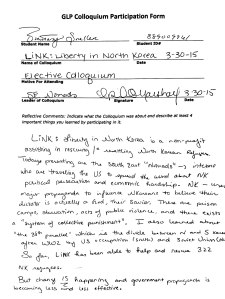 I am planning on applying to be a ‘Nomad’ this upcoming Fall, which includes traveling the US to talk to diverse universities and communities about the situation in NK to raise awareness and to further engage in the change that is already happening. Though LiNK is not the end goal for my endeavors, it is an opportunity that will colorfully add to “my brand” the experience in the field of humanitarian action and global engagement required to further reach my goals as a global citizen and leader.
I am planning on applying to be a ‘Nomad’ this upcoming Fall, which includes traveling the US to talk to diverse universities and communities about the situation in NK to raise awareness and to further engage in the change that is already happening. Though LiNK is not the end goal for my endeavors, it is an opportunity that will colorfully add to “my brand” the experience in the field of humanitarian action and global engagement required to further reach my goals as a global citizen and leader.
“Strange is our situation here on Earth. Each of us comes for a short visit, not knowing why, yet sometimes seeming to divine a purpose. From the standpoint of daily life, however, there is one thing we do know: that man is here for the sake of other men – above all for those upon whose smiles and well-being our own happiness depends.”
Lectures & Events
International Welcome
I believe this was my first time attending the international welcome. I was motivated to go because I had several international friends in the International dorm from my previous year at UNCG, and knew right away at the beginning of my sophomore year that I wanted again to become involved with the vibrant international community on campus. Attending this welcome made me realize to what extent UNCG was a very diverse university, welcoming over 150 international students that year, each with unique backgrounds and disciplines. What I enjoyed most from my experience at this welcome was seeing all the cultures and people that I did not 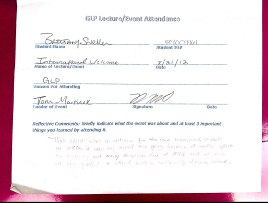 know very much about and realizing how little I was in the big scheme of things. I remember wanting to talk to all of them and learn more about their cultures and what it is like for them. I remember feeling more attracted to the European cultures rather than Asian or Middle East cultures because of my passion for the French language. But now, I realize I was “close-minded”, so to speak, compared to who I am today. Reflecting on this experience today makes me see, however, that I had only begun my long journey of cross-cultural competency and understanding.
know very much about and realizing how little I was in the big scheme of things. I remember wanting to talk to all of them and learn more about their cultures and what it is like for them. I remember feeling more attracted to the European cultures rather than Asian or Middle East cultures because of my passion for the French language. But now, I realize I was “close-minded”, so to speak, compared to who I am today. Reflecting on this experience today makes me see, however, that I had only begun my long journey of cross-cultural competency and understanding.
Interlink – International Students Incorporated (ISI) American Home Dinner
My Conversation Partners from Interlink, Meliza (France), Sherry (Taiwan), and Delal (Kuwait), went to a dinner hosted by an American family which was organized by the ISI—a Greensboro Christian friendship community organization. It was a very new and somewhat strange experience for me because, in the midst of 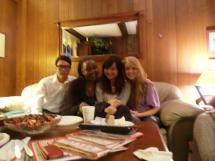 50 or so internationals, I was the only American attending this dinner in an American home. When we entered, our hosts greeted us very kindly, as southern Americans tend to do, and they assumed that I was an international by asking where I was from in the world, “Germany”?, “the UK”?. It made me wonder, “Do I look international”? It was a thought that delighted me. When I responded “No ma’am, I’m American”, she praised me for being a great friend to my international peers. I then wondered, “Was it something I said”? At the time I could not see it, but I was already becoming a global leader in a small, yet significant way. I was through my presence, contributing to the awareness of an emerging world community. As I sat there with my delicious home-cooked food, I looked around and realized I was sitting in a circle with people from various countries, more than I could count on my two hands. It dawned on me that though we may be different in a variety of ways: physically, religiously, nationality, etc. I saw that we were all a part of a larger community and it was at this time when I truly began to embrace the beauty of other cultures in opposition to my own, for both their unique diversity and their likeliness.
50 or so internationals, I was the only American attending this dinner in an American home. When we entered, our hosts greeted us very kindly, as southern Americans tend to do, and they assumed that I was an international by asking where I was from in the world, “Germany”?, “the UK”?. It made me wonder, “Do I look international”? It was a thought that delighted me. When I responded “No ma’am, I’m American”, she praised me for being a great friend to my international peers. I then wondered, “Was it something I said”? At the time I could not see it, but I was already becoming a global leader in a small, yet significant way. I was through my presence, contributing to the awareness of an emerging world community. As I sat there with my delicious home-cooked food, I looked around and realized I was sitting in a circle with people from various countries, more than I could count on my two hands. It dawned on me that though we may be different in a variety of ways: physically, religiously, nationality, etc. I saw that we were all a part of a larger community and it was at this time when I truly began to embrace the beauty of other cultures in opposition to my own, for both their unique diversity and their likeliness.
Ben Ramsey, Lecture on After Education: Learning on a Hot Planet
I remember receiving an email by Dr. Pubantz informing the Honors community of the importance of attending Dr. Ben Ramsey’s lecture on Education on a Hot Planet because it was the University’s inaugural Future of Learning lecture. 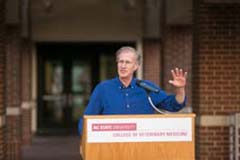 Little did I know at the time, that what Dr. Ramsey mentioned that evening would come out and have a critical role in the development of my IGS capstone research project. His lecture raised the concern regarding the role of higher education in shaping the global economy and addressing environmental issues. That evening I remember feeling distressed about the situation because what could I do to change the current global and environmental threats? It was a rhetorical question at the time because I knew I wasn’t capable of implementing substantial change. However, I’ve come to terms with my individual responsibility which was to educate myself about the issue(s). Ramsey mentioned in his lecture many ideas and notions that I was not accustomed to hearing, but over the past two years I have since become increasingly aware and knowledgeable about the issue(s) and can contribute further to the international debate.
Little did I know at the time, that what Dr. Ramsey mentioned that evening would come out and have a critical role in the development of my IGS capstone research project. His lecture raised the concern regarding the role of higher education in shaping the global economy and addressing environmental issues. That evening I remember feeling distressed about the situation because what could I do to change the current global and environmental threats? It was a rhetorical question at the time because I knew I wasn’t capable of implementing substantial change. However, I’ve come to terms with my individual responsibility which was to educate myself about the issue(s). Ramsey mentioned in his lecture many ideas and notions that I was not accustomed to hearing, but over the past two years I have since become increasingly aware and knowledgeable about the issue(s) and can contribute further to the international debate.
International Festival (I-Fest) 2013 & 2015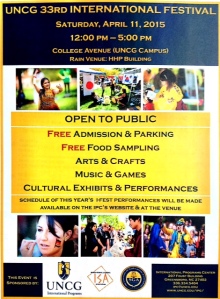
The great thing about attending an event multiple times is being able to observe the differences in one owns’ attitude about it, such as with the annual I-Fest at UNCG. The first time I went I was overwhelmed by the bustling crowd eager to grab as many “culturally-representative” knickknacks from all the booths. I loved the environment, but more than that I loved the reason for it; to bring about the awareness of diverse cultures and peoples and to engage the local community in a global/international event. Though I was “fascinated” by the more “exotic” cultures from the Middle East and Asia, my attraction was mainly by the European countries  and more specifically, France. However, that was in 2013, when my passion for French culture was not yet “satisfied” by a fourteen month-long immersion that my study abroad experience would bring a few months later. This just recent I-Fest of 2015 was a very different experience than in 2013. I participated at a booth for the New Arrivals Institute, and I truly cared about engaging
and more specifically, France. However, that was in 2013, when my passion for French culture was not yet “satisfied” by a fourteen month-long immersion that my study abroad experience would bring a few months later. This just recent I-Fest of 2015 was a very different experience than in 2013. I participated at a booth for the New Arrivals Institute, and I truly cared about engaging 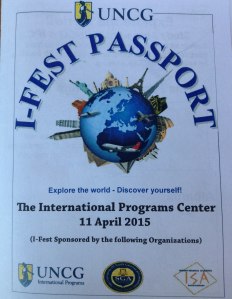 with the people from all the booths, earning a sticker each time I learned something new about that culture. My attitude towards other cultures changed, this time I focused on the Asian cultures as I have developed a new passion for the Japanese culture. This time around, I felt engaged as a global citizen should feel, and I realized this because of the friends I had from various countries who were representing their booths such as: Oman, Japan, Kuwait, Germany, China, Russia, and Taiwan. I realized how far I had grown and developed on my journey as a global citizen, and how much I have benefited from my post-study abroad internationalized/globalized view of the world.
with the people from all the booths, earning a sticker each time I learned something new about that culture. My attitude towards other cultures changed, this time I focused on the Asian cultures as I have developed a new passion for the Japanese culture. This time around, I felt engaged as a global citizen should feel, and I realized this because of the friends I had from various countries who were representing their booths such as: Oman, Japan, Kuwait, Germany, China, Russia, and Taiwan. I realized how far I had grown and developed on my journey as a global citizen, and how much I have benefited from my post-study abroad internationalized/globalized view of the world.


Berlin Wall Symposium
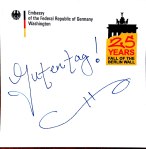 The Berlin Wall Symposium was a great even that I had not expected to attend. I just so happened to be walking on College Avenue when German-speaking students were “forming the wall”. My friend, Juliet, motioned me to come join, so I put on an over-sized, yellow “25 years fall of the Berlin Wall”
The Berlin Wall Symposium was a great even that I had not expected to attend. I just so happened to be walking on College Avenue when German-speaking students were “forming the wall”. My friend, Juliet, motioned me to come join, so I put on an over-sized, yellow “25 years fall of the Berlin Wall”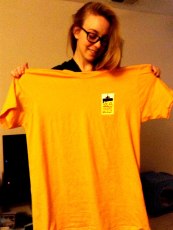 t-shirt and posed in the cold for pictures that would later be posted on the website of the Embassy of the Federal Republic of Germany’s in Washington D.C. I felt like a leader, doing something meaningful, but what? I did not exactly know. This event was great for me because I re-learned everything I should have known, having already visited the Wall in person during my time abroad. My travels in Germany became “real” during this event as I could put the global significance of the fall of the Wall to vivid images of the colorfully decorated Wall that we see today. It was like reliving my experience in front of the wall again, just a few
t-shirt and posed in the cold for pictures that would later be posted on the website of the Embassy of the Federal Republic of Germany’s in Washington D.C. I felt like a leader, doing something meaningful, but what? I did not exactly know. This event was great for me because I re-learned everything I should have known, having already visited the Wall in person during my time abroad. My travels in Germany became “real” during this event as I could put the global significance of the fall of the Wall to vivid images of the colorfully decorated Wall that we see today. It was like reliving my experience in front of the wall again, just a few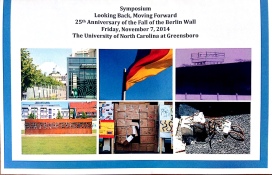 months later and this time on American soil. It was an event I could apply directly to my previous experiences and an event that helped me put into context the significant meaning and reason for celebrating the Wall’s 25th anniversary since its fall.
months later and this time on American soil. It was an event I could apply directly to my previous experiences and an event that helped me put into context the significant meaning and reason for celebrating the Wall’s 25th anniversary since its fall.
Paris, Islam, and Race
The event Paris, Islam, and Race was created in order for students and faculty to have an open discussion about the shooting at Charlie Hebdo that took in Paris by Islamic extremists.  Dr. McFadden opened the discussion by discussing how France has played a particular role regarding its history of colonialism and its strong position about the freedom of speech and the freedom of the press. One distinguished Muslim student talked about the injustices towards “her people” due to these tragic acts of violence. She stated how Muslims of Islamic descent are not bad people; they are a race victimized by extremists who give them an international
Dr. McFadden opened the discussion by discussing how France has played a particular role regarding its history of colonialism and its strong position about the freedom of speech and the freedom of the press. One distinguished Muslim student talked about the injustices towards “her people” due to these tragic acts of violence. She stated how Muslims of Islamic descent are not bad people; they are a race victimized by extremists who give them an international 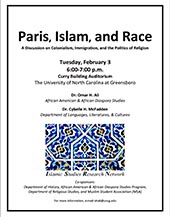 “bad reputation”, especially after the attack on 9/11. What was interesting to witness was the diverse array of opinions among the student body that chose to speak. I chose to sit, listen, and observe the variety of voices that contributed to this debate. I have learned over the years that being a leader does not always imply being the first to talk, or guiding a discussion; sometimes it means being able to silently, and actively listen to others.
“bad reputation”, especially after the attack on 9/11. What was interesting to witness was the diverse array of opinions among the student body that chose to speak. I chose to sit, listen, and observe the variety of voices that contributed to this debate. I have learned over the years that being a leader does not always imply being the first to talk, or guiding a discussion; sometimes it means being able to silently, and actively listen to others.
Chinese New Year Celebration
The Chinese New Year event was to celebrate the year of the sheep/goat/ram. I first attended the event sponsored by the Languages, Literatures, and Cultures department which had a variety of performances that represented the Chinese culture and traditions. I learned more about the Chinese language and culture more than I had expected to, beginning with the history of the celebrations which originates with Nian Shou the dragon. I attended the event with my Japanese friend, Tomomi, who shared her viewpoint of the Chinese culture with me and pointed out that some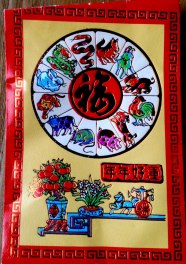 Chinese characters in the writing system are actually similar to Japanese “kanji”, and all over the room were decorations meaning “fortune” in both languages. Being an IGS major, I felt like this event exposed me to Chinese traditions that I would not have normally had the opportunity to see such as a performance of a traditional Tao dance. My interest in Asian culture has significantly grown over the past several months. I believe this interest will only allow me to further pursue and engage in cultural adaptation by discovering new cultures that I am less familiar with.
Chinese characters in the writing system are actually similar to Japanese “kanji”, and all over the room were decorations meaning “fortune” in both languages. Being an IGS major, I felt like this event exposed me to Chinese traditions that I would not have normally had the opportunity to see such as a performance of a traditional Tao dance. My interest in Asian culture has significantly grown over the past several months. I believe this interest will only allow me to further pursue and engage in cultural adaptation by discovering new cultures that I am less familiar with.
Music from Inner Mongolia
I was very excited to attend because of my love for music, culture, and talent. I have never heard a horse head fiddle before and was eager to discover a new aspect of Mongolian culture that I knew would not present itself again anytime soon. Aorigele performed several traditional Mongolian songs inspired by Mongolian language, love, nature, culture, tradition, emotions, etc. Aorigele’s performance shed light on the fact that there are so many different ways to experience a culture. Immersion into a culture is the most ideal and practical way to discover a culture, however if we cannot be immersed then exposure such as Aorigele’s performance is at least an alternative to learn more about a culture. This is especially true today with rapid globalization; one can experience “culture” through all types of media by just simply typing into Google. It is, however, very convenient for learning and broadening ones’ horizons without depleting the bank account. It is through cultural immersion, via the Internet or physically being in a country, that one can become more knowledgeable about the diverse cultures and people, thus becoming a globally engaged individual and community member.
Experiential Credit
PAL & Interlink Conversation Partner
After my freshman year, which was highly involved with the international students on campus, I continued to pursue ways to integrate myself into the international community. I applied to be a Peer Academic and Liaison (PAL) and an Interlink Conversation Partner. Each of these are similar groups because they both assist incoming international students adapt to UNCG’s campus and to American life and culture. At first I viewed these experiences as a way to expand my social network, which it did drastically as now I have friends all over the world, but I never realized to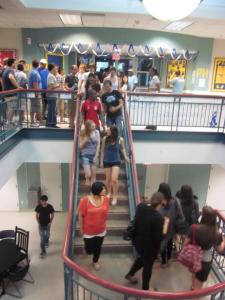 what extent these experiences contribute to my academic and professional endeavors. The abilities that I acquired and built upon go far beyond the significance of my social network. It illustrates my passion for international and global affairs, and reveals my strong interest to be actively engaged in a larger world community. I benefited greatly from my experience as a PAL and Conversation Partner. The friends I made inspired me as an (American) student, and also challenged me in my own academic goals. Seeing them thrive on and off UNCG’s campus, with their own difficulties learning the language, gave me hope that one day I would have a friend in France that would treat me the same. My language partners with Interlink became my close friends and I was grateful to become close with these people, and cultures, that differed from mine as it gave me opportunities to learn about their way of life and develop my own cross-cultural understanding. Getting to know these people personally, on a deeper level, opened up ways to discover a culture that I had not previously imagined possible. We shared moments that were very telling and reflective upon their way of thinking and behaving in their own cultures. Moreover, these close experiences broadened my horizons, specifically by allowing me to become more open-minded and embracive of these wonderful cultures.
what extent these experiences contribute to my academic and professional endeavors. The abilities that I acquired and built upon go far beyond the significance of my social network. It illustrates my passion for international and global affairs, and reveals my strong interest to be actively engaged in a larger world community. I benefited greatly from my experience as a PAL and Conversation Partner. The friends I made inspired me as an (American) student, and also challenged me in my own academic goals. Seeing them thrive on and off UNCG’s campus, with their own difficulties learning the language, gave me hope that one day I would have a friend in France that would treat me the same. My language partners with Interlink became my close friends and I was grateful to become close with these people, and cultures, that differed from mine as it gave me opportunities to learn about their way of life and develop my own cross-cultural understanding. Getting to know these people personally, on a deeper level, opened up ways to discover a culture that I had not previously imagined possible. We shared moments that were very telling and reflective upon their way of thinking and behaving in their own cultures. Moreover, these close experiences broadened my horizons, specifically by allowing me to become more open-minded and embracive of these wonderful cultures.
Study Abroad in Chambéry and Lyon, France
My study abroad exchange quickly became the moment in my life when I flourished. Study abroad no longer was “study abroad” in my eyes. It was a whole new life transition, a life that completely flip-flopped during those fourteen months, and it was all for the better. The Brittany before and after was nearly unrecognizable; except for the laugh of course, that didn’t change. After my experiences in France, and in my travels across Europe, I suddenly had “proof”, so to speak, that I could thrive in a multiethnic, multicultural, and multidiscipline environment with a forever-changing atmosphere. I know what it’s like to not understand language at all and then progress months later and know the language as if it was my own. I know that feeling of frustration when you haven’t quite yet fully adapted into that culture. I know what it’s like to be overwhelmed by the novelty of a new culture, and I know what it’s like to become used to it. Finally, I know what it’s like to discover ones’ strengths, weakness, and all that falls in between. In the words of a friend, “I gave Europe a year, and Europe gave me, me.”
When I arrived in France in May 2013, I was still an outsider looking in; I was still a tourist, a “foreigner”, and an American with a southern accent depending on who I was talking to. The first university I attended, Université de Savoie, in Chambéry, was a summer program with fellow American students. We had many opportunities to experience French culture by participating in extra-curricular activities, such as: visiting a Monastery, a local farm, a wine cave, etc.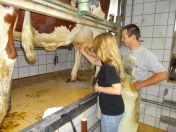 as well as options to go paragliding, canoeing, cannoning, trips to Nice and Grenoble, etc. In between class and cultural activities, I experienced French culture and life by immersing into my boyfriend’s family who lived in the countryside in the department of Ardèche. It was there, among his French family that I transitioned from a touristy American into a true learner of what it means to be immersed and to adapt to French culture.
as well as options to go paragliding, canoeing, cannoning, trips to Nice and Grenoble, etc. In between class and cultural activities, I experienced French culture and life by immersing into my boyfriend’s family who lived in the countryside in the department of Ardèche. It was there, among his French family that I transitioned from a touristy American into a true learner of what it means to be immersed and to adapt to French culture. 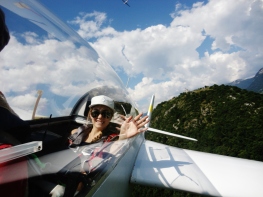 I was able to go places, to attend events, to witness the French culture, more than I ever could have imagined. It was almost nine months after my transition in France that I realized how much I’ve grown and developed in all areas: personally, academically, and professionally. When I began studying at the Université Jean Moulin Lyon III in the fall, I matured in my French skills drastically with eight or so classes each semester taught only in French. I also babysat three young French boys aged two, five, and seven who spoke faster and more fluidly than me which forced me to make progress, otherwise I wouldn’t have understood anything they were saying.
I was able to go places, to attend events, to witness the French culture, more than I ever could have imagined. It was almost nine months after my transition in France that I realized how much I’ve grown and developed in all areas: personally, academically, and professionally. When I began studying at the Université Jean Moulin Lyon III in the fall, I matured in my French skills drastically with eight or so classes each semester taught only in French. I also babysat three young French boys aged two, five, and seven who spoke faster and more fluidly than me which forced me to make progress, otherwise I wouldn’t have understood anything they were saying.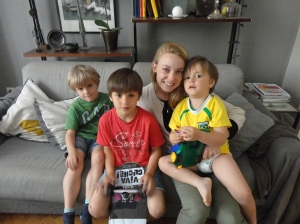
Academically my French was getting better day after day and my knowledge of French culture, literature, art, music, food, etc. was substantially increasing too. As time passed, I was acquiring a more international and globalized vision of the world, a very useful skill for when I search for employment. More generally from my travels in Europe, I gained confidence in my ability to communicate effectively across a wide array of diverse cultures. My experiences both toughened and softened my character. My patience grew, while my motivation intensified. I was transitioning into a global citizen; sharing my personal identity with that of the larger world community. My old and new experiences were shaping who I was, and without abandoning that once known “touristy American”, I was adapting to a new way of thinking, a new way of living and looking at the world. I became more and more embracive of the diversity in world music, food, art, spiritual traditions and culture. 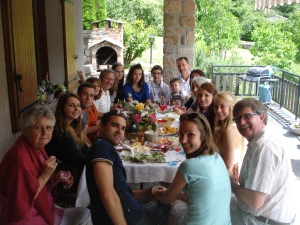 It was during my study abroad experience when I decided I wanted to become an engaged citizen in this emerging world community; when I realized that the goals I would make for myself in the future will be based on contributing to our globalized efforts whether that be at the local or global level.
It was during my study abroad experience when I decided I wanted to become an engaged citizen in this emerging world community; when I realized that the goals I would make for myself in the future will be based on contributing to our globalized efforts whether that be at the local or global level.
I returned to the US in July 2014, fourteen months after I began my journey towards becoming a global citizen. Today, I derive my current identity from my diverse opportunities and experiences spent abroad, as they have helped shape me into a global citizen and leader and have driven a passion in me to be engaged in our global endeavors as a larger world community.
(See photo gallery (left) for additional photos)
IDI Results & Reflection
What was really fascinating from my IDI results was the contrast of the results before and after my study abroad experience. I had taken the IDI for the first time in my IGS 200 course which was marked the beginning of my international awareness and globalized vision. My results pre-study abroad were at the mid- Minimization Orientation. The second time I took the IDI was during my IGS 400 course, or my last semester at UNCG. My post-study abroad results had jumped nearly thirty points. I achieved the Adaptation Orientation, with a score of 136 out of 145, which means that I have the capability of shifting cultural perspective and changing behavior in culturally appropriate and authentic ways. An Adaptation Orientation’s strength is defined as having a deep understanding of at least one other culture and is comfortable bridging cultural differences. I believe this tremendous progression along the continuum is due to the diverse experiences I had the opportunity to have while abroad. In order to further grow and develop with an Adaption Orientation, it is necessary that I continue to build upon my knowledge of cultural differences and increase my interactions with other cultural groups. More specifically, I need to focus more attention on developing perspective shifting and behavioral skills for bridging across cultural differences. My task is to further deepen my understanding by incorporating adaptive strategies when interacting across cultures.
